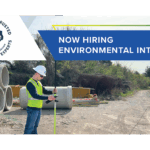
Lawton Environmental Compliance Auditing plays a crucial role in ensuring businesses meet the necessary environmental standards and regulations. By conducting thorough audits and assessments, Lawton helps organizations understand and achieve compliance with environmental legislation that governs their operations. In this article, we will explore the concept of environmental compliance, the significance of auditing, Lawton’s approach to compliance auditing, achieving compliance with Lawton’s assistance, as well as common challenges faced in environmental compliance auditing and how Lawton overcomes them.
Understanding Environmental Compliance
Definition and Importance of Environmental Compliance
Environmental compliance refers to the adherence of businesses and industries to environmental laws, regulations, and standards. It involves meeting specific requirements related to environmental protection, pollution prevention, resource conservation, and sustainable development.
Compliance with environmental regulations is crucial for businesses to avoid legal risks, reputational damage, and financial penalties. Furthermore, it showcases an organization’s commitment to being socially responsible and environmentally conscious.
Ensuring environmental compliance goes beyond mere regulatory requirements; it is a proactive approach towards safeguarding the planet for future generations. By integrating sustainable practices into their operations, businesses can contribute to global efforts in combating climate change and preserving biodiversity.
Key Elements of Environmental Compliance
Environmental compliance comprises several key elements that organizations must consider:
- Understanding the applicable regulations and standards
- Implementing effective internal policies and procedures to meet compliance requirements
- Monitoring and evaluating the organization’s environmental performance
- Reporting and documenting environmental activities and performances
- Continuous improvement through audits and corrective actions
Effective environmental compliance also involves fostering a culture of environmental stewardship within the organization. This includes providing training and resources to employees to raise awareness about environmental issues and encourage sustainable practices in their daily work routines. By engaging employees in environmental initiatives, organizations can enhance their compliance efforts and drive positive change within their operations and communities.
The Role of Auditing in Environmental Compliance
Purpose of Environmental Audits
Environmental audits serve as a critical tool in assessing an organization’s environmental compliance performance. The primary purpose of environmental audits is to identify any non-compliance issues, evaluate the effectiveness of existing environmental management systems, and recommend improvements to achieve and maintain compliance.
Through comprehensive audits, businesses can identify potential environmental risks, reduce the likelihood of environmental incidents, and promote sustainable practices.
Moreover, environmental audits also play a crucial role in enhancing transparency and accountability within organizations. By conducting regular audits, companies not only ensure compliance with environmental regulations but also demonstrate their commitment to environmental stewardship to stakeholders, including customers, investors, and the public.
Types of Environmental Audits
There are different types of environmental audits, each serving a specific purpose:
- Compliance Audits: These audits assess an organization’s compliance with environmental regulations and standards.
- Management System Audits: These audits evaluate the effectiveness of an organization’s environmental management system, such as ISO 14001 certification requirements.
- Operational Audits: These audits focus on identifying and assessing environmental risks and impacts associated with day-to-day operations.
Each type of environmental audit provides valuable insights into different aspects of an organization’s environmental performance, helping to create a holistic view of its environmental impact. By combining these audit types, companies can develop comprehensive strategies to improve their environmental management practices and achieve long-term sustainability goals.
Lawton’s Approach to Environmental Compliance Auditing
Lawton’s Auditing Methodology
Lawton employs a comprehensive and systematic approach to environmental compliance auditing. Their methodology involves:
- Thorough review of applicable environmental laws, regulations, and standards
- Assessment of the organization’s environmental management systems and processes
- On-site inspections and examinations to identify potential compliance gaps
- Evaluation of documentation and records related to environmental performance
Lawton’s commitment to excellence in environmental compliance auditing is evident in their meticulous attention to detail and dedication to staying abreast of the latest regulatory developments. Their team of auditors undergoes regular training and professional development to ensure they are equipped with the knowledge and skills necessary to provide top-notch auditing services.
Unique Features of Lawton’s Auditing Process
Lawton’s auditing process stands out due to its unique features:
- Qualified and experienced auditors with expertise in diverse environmental sectors
- Tailored and customized audits to meet the specific needs of each organization
- Clear and actionable audit reports with recommended strategies for achieving compliance
- Proactive engagement with clients to ensure thorough understanding and collaboration throughout the auditing process
Moreover, Lawton goes beyond the traditional scope of auditing by offering additional support and guidance to help organizations implement the recommended compliance strategies. They provide ongoing assistance to address any identified issues and offer resources for continuous improvement in environmental performance. This holistic approach sets Lawton apart as a trusted partner in sustainable business practices.
Achieving Compliance with Lawton’s Auditing
Lawton is a leading provider of auditing services that specialize in helping organizations achieve and maintain environmental compliance. With a strong focus on sustainability and regulatory adherence, Lawton offers a comprehensive approach to ensuring that businesses operate in accordance with environmental laws and standards.
Steps Towards Compliance
Lawton’s methodology for achieving compliance is rooted in a systematic approach that involves thorough evaluation, strategic planning, and continuous monitoring. The key steps include:
- Evaluation of current compliance status and identification of potential areas of improvement
- Development and implementation of tailored compliance strategies and action plans
- Training and education of employees to foster a culture of environmental responsibility
- Ongoing monitoring, evaluation, and reporting to ensure sustained compliance
Lawton’s team of experts works closely with organizations to customize compliance strategies that align with their specific industry requirements and operational needs. By leveraging their in-depth knowledge of environmental regulations, Lawton helps clients navigate complex compliance challenges and implement effective solutions.
Maintaining Compliance Post-Audit
Recognizing that achieving compliance is an ongoing effort, Lawton provides continuous support to organizations in maintaining regulatory adherence. Their post-audit services include:
- Regular follow-up audits to track progress and address any emerging non-compliance issues
- Offering consulting services for continuous improvement of environmental management systems
- Providing up-to-date information on changes in environmental regulations and legislation
Lawton’s commitment to sustainability and excellence extends beyond the initial audit process, as they strive to build long-term partnerships with clients to ensure lasting compliance and environmental stewardship.
Challenges and Solutions in Environmental Compliance Auditing
Common Challenges in Compliance Auditing
Environmental compliance auditing can present several challenges, such as:
- Complexity and diversity of environmental regulations
- Changes in laws and standards
- Lack of internal resources and expertise
- Ensuring consistency in compliance across multiple locations or facilities
Lawton’s Solutions to Overcome Auditing Challenges
Lawton addresses these challenges through:
- Intensive research and staying up-to-date with regulatory changes
- Providing guidance and support in interpreting and implementing complex regulations
- Offering training and capacity-building programs for organizations
- Utilizing advanced auditing tools and technologies to streamline the auditing process
In conclusion, Lawton Environmental Compliance Auditing plays a pivotal role in helping organizations achieve and maintain environmental compliance. By understanding the importance of compliance, the role of auditing, Lawton’s unique approach, and the challenges faced in compliance auditing, businesses can mitigate risks, improve environmental performance, and contribute positively to sustainable development.
Understanding the complexities of environmental compliance is just the beginning. If you’re ready to take proactive steps towards ensuring your business not only meets but exceeds environmental regulations, ESE Partners is here to guide you. With our team of dedicated environmental engineers and scientists, we offer tailored solutions that address your unique challenges and promote sustainable business practices. From assessment to remediation, and compliance to natural resources, we are committed to responsibly moving your business forward. Don’t wait to enhance your environmental performance and secure your company’s future. Request A Proposal today and partner with ESE Partners for expert environmental problem solving.








